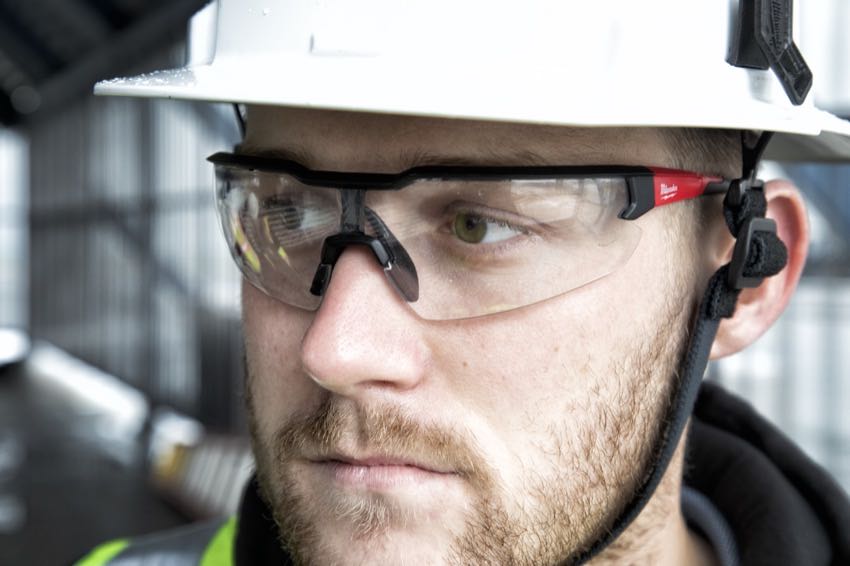Work-related eye injuries are fairly common in all industries.This is especially relevant if you work near equipment that generates by-products/particles/substances.Fortunately, many injuries can be prevented with the proper use of safety glasses that will protect your eyes from injury from chemical splashes, metal particles, or radiation.However, choosing the right safety glasses is not as easy as it may seem.With the different types of frames and lenses and the information available online, it can be very difficult to choose the right model that provides the right protection and comfort.

You can view our range of glasses here - https://dudu.lt/collections/glasses
First of all, you should know exactly the dangers in the work environment, i.e.i.eidentify potential eye hazards that you may encounter in your workplace.Your workplace may have any one or more of the following hazards:
Mechanical Hazards This type of hazard is caused by equipment and tools that can release particles that can hit the cornea and to injure her.
Radiation - From UV rays to visible light from welding and other operations, various types of optical radiation can affect your eyes and cause acute or chronic eye damage.
Temperature – Risks from hot liquids, metal splashes and intense heat radiation fall into this category.
Chemicals - This category includes all foreign substances such as dust, liquids, gases, chemical splashes, etc.

Understand the types of safety glasses and lens materials
Once you've identified workplace-related eye hazards, you need to familiarize yourself with the different types of safety glasses and the level of eye protection they offer.Generally speaking, safety glasses can be divided into two types - safety glasses of the normal type and safety glasses for special work operations.
Depending on the lens material, safety glasses can protect your eyes from injuries caused by flying objects, particles, optical radiation.Materials that are commonly used in the manufacture of safety glasses are polycarbonate, acrylic, NXT polyurethane and optical glass.Remember to consider the pros and cons when choosing a lens material:
- Polycarbonate lenses - light, perfectly protects against solid particles and scratches, protects against UV rays, not as transparent as NXT polyurethane or optical glass glasses.
- NXT polyurethane (Trivex) lenses - excellent protection against solid particles, high standard of transparency, extremely light, but more expensive.
- Acrylic lenses - inexpensive, light, resistant to contact with chemicals, but not wear-resistant, have low optical transparency.
- Optical glass lenses - excellent protection against scratches, extremely transparent, but are heavier, more expensive and less protective against flying solid particles.
When choosing the right lens material for safety glasses, it is important to consider the following factors that can affect the comfort of wearing glasses:
Lens Coatings - Lens coatings are used to improve the functionality of the glasses.For example, if you want to use safety glasses in a humid environment, you might want an anti-fog coating to avoid condensation and the hassle of frequently removing the glasses to clean the lenses.You can also choose a hard coating to make the lenses more scratch resistant.
Lens tints - Lens tints are very useful when safety glasses need to be used in environments with a high risk of optical radiation.From a simple gray/green coating that reduces light intensity to tints that provide UV protection, there are many lens tint options available.
Prescription Safety Glasses - If you or your employees have impaired vision, you may need to use prescription safety glasses and glasses that have been fitted to provide optimal visibility and full protection.
Comfort and design are the two main factors that can affect the acceptance of safety glasses in your workplace.You should choose glasses that are lightweight and ergonomically designed to be comfortable to wear throughout the working hours.
We hope this information will help you purchase the right safety glasses online.If you have any further questions, you can contact us: info@dudu.en


